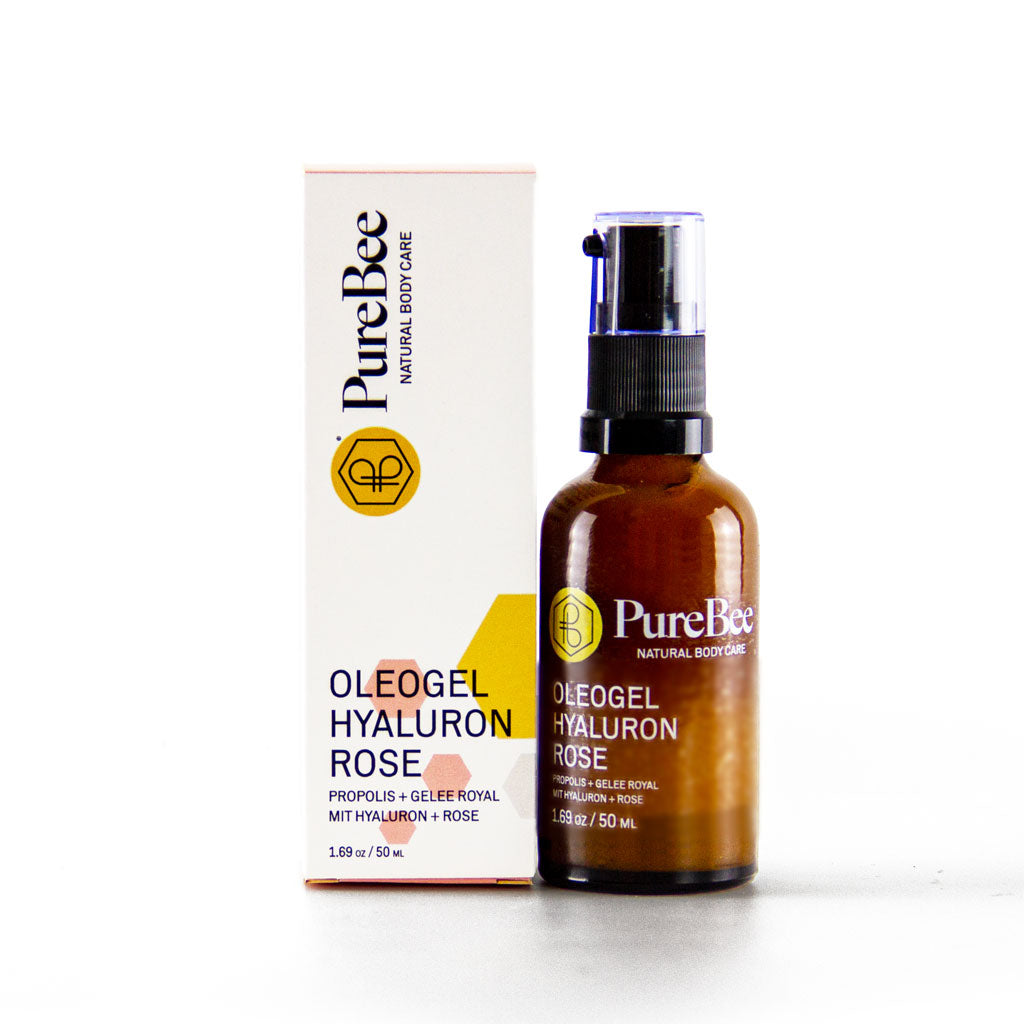Propolis is one of the many notable but lesser known products made by honey bees. In addition to nectar and pollen, honey bees also collect plant resins. While nectar and pollen are stored in the combs for later consumption, the honey bees mix plant resins with enzymes and beeswax to create a substance called propolis. This serves as a "putty" in the hive and plugs any holes and cracks.

How does propolis work on the skin?
Share
How we humans use propolis
Ancient civilizations used propolis for a variety of purposes. The Greeks used it to treat abscesses, the Assyrians to fight infection, and the Egyptians during the mummification process.
Today we use propolis for ingestion as a dietary supplement and in cosmetic products.
In cosmetics, propolis has also been known as a beauty product for over 3,000 years in Egypt, Rome and Greece. As an antioxidant, it naturally helps restore and maintain skin texture. Propolis helps balance and soothe problematic skin by accelerating the rate of new cell growth.
What are the benefits of propolis in natural cosmetics?
Propolis is one of nature's most powerful natural ingredients. It offers some benefits for our skin and is also good for people with sensitive skin.
- Relieves redness and pigmentation : Skin redness can be caused by a variety of triggers. Be it through external (e.g. cold) or internal factors (e.g. food or stress). To alleviate and prevent redness, moisturizing skin care with propolis and beeswax is recommended. For inner well-being Propolis drops as a dietary supplement.
- Provides antioxidant protection from environmental aggressors . Rich in antioxidants, the resin can neutralize free radicals and oxidative stress that damages skin cells. 1
- Prevents premature skin aging, dullness and dark spots : Here again the antioxidants come into play, which not only protect the skin but also boost cell regeneration. 2
- Boosts Collagen Production : Studies have shown that propolis stimulates both type I and type III collagen production in broken skin. However, it has not yet been researched how this affects the collagen production of healthy skin.

